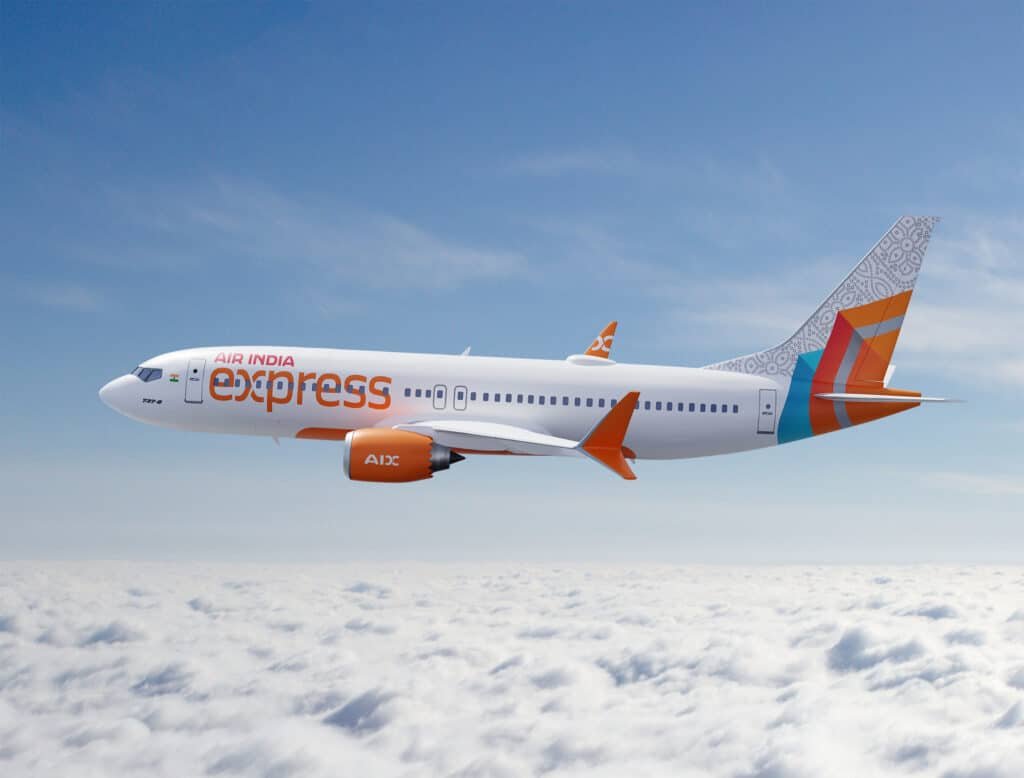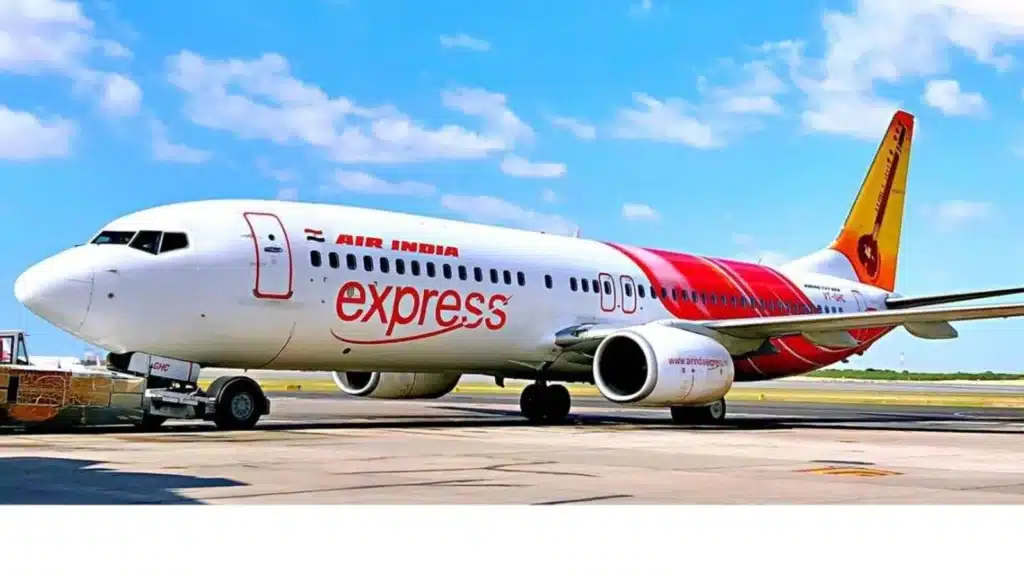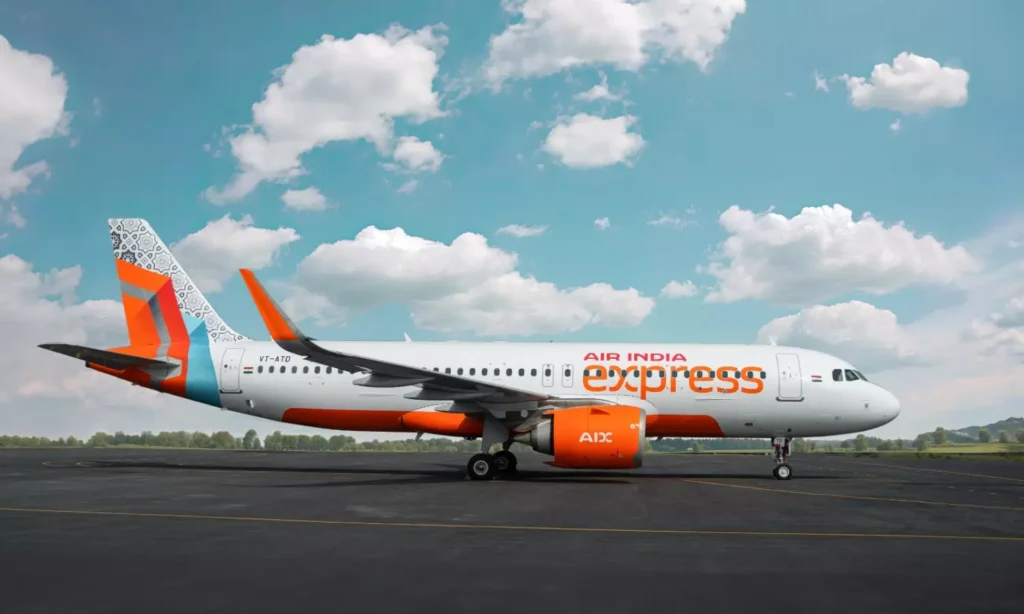Picture this: you’re scrolling through your phone on a sweltering Dubai afternoon, desperately calculating whether you can afford that flight home for Diwali. Then boom—Air India Express drops their Freedom Sale like a gift from the aviation gods. Air India Express Freedom Sale Dubai has just made your homecoming dreams infinitely more achievable, with fares starting at a jaw-dropping AED 53.5.
This isn’t your typical airline promotion. We’re talking about 5 million seats released into the wild, creating what might be the biggest fare frenzy the UAE has seen all year. The timing couldn’t be more perfect, coinciding with India’s 79th Independence Day celebrations and giving the massive Indian expat community here a proper reason to celebrate.
The Numbers That Actually Matter
Let’s cut through the marketing fluff and talk real money. Air India Express Freedom Sale Dubai delivers fares that would make your accountant weep tears of joy:
Domestic flights within India kick off at AED 53.5. Yes, you read that correctly—less than what you’d spend on a decent brunch in DIFC. International routes from the UAE start at AED 179, which is roughly what some people spend on a single shopping trip to Mall of the Emirates.
The Xpress Value fares add just a few dirhams but include proper baggage allowances. Domestic Xpress Value starts at AED 57.5, while international climbs to AED 187.5. For families lugging suitcases full of gifts and essentials, this small premium makes perfect sense.
Travel agents across Dubai Marina, Karama, and Sharjah have been fielding calls since dawn. One agent in Bur Dubai mentioned booking 47 tickets before lunch, mostly for Onam celebrations in Kerala. The rush is real, and the seats are disappearing faster than parking spots at Dubai Mall during sales season.
Festival Season Just Got Affordable
The UAE’s Indian community knows the painful mathematics of festival travel. Peak season fares can hit AED 800 or more, turning family visits into serious financial decisions. Air India Express Freedom Sale Dubai changes this equation completely.
Onam celebrations in September suddenly become accessible for families who previously watched from afar. University students studying in Dubai can now plan proper semester breaks without surviving on instant noodles for months afterward. Even spontaneous weekend trips to Mumbai or Delhi enter the realm of possibility.
The psychological impact goes beyond mere economics. When flying home doesn’t require months of savings, the emotional distance between Dubai and hometown shrinks dramatically. Suddenly, missing your nephew’s birthday or your grandmother’s cooking feels less inevitable.
Local community leaders in areas like Karama and International City have noticed the buzz. WhatsApp groups are sharing booking screenshots like trophies. Social media feeds overflow with “finally booked!” posts, each one representing a family reunion that might not have happened otherwise.

The Booking Battlefield
Here’s where strategy matters. The Air India Express Freedom Sale Dubai operates like a sophisticated game of musical chairs—millions of seats available, but the best prices vanish quickest. Smart travellers are already deployment multiple tactics.
Flexible dates become your secret weapon. Being willing to fly on Tuesday instead of Friday could mean the difference between AED 179 and AED 400. The airline’s booking system rewards flexibility with lower fares, especially during the initial weeks of the sale.
Direct booking through Air India Express’s website or mobile app offers the cleanest experience. No hidden agent fees, faster confirmation, and direct access to seat selection. The app particularly shines during high-traffic periods like this sale, handling the booking crush more smoothly than third-party platforms.
Travel agents remain valuable for complex itineraries or group bookings. Experienced agents in Dubai’s travel hubs understand the airline’s booking patterns and can suggest alternative dates or routes that casual bookers might miss.
Early morning and late evening booking sessions often yield better results. The system experiences less traffic during these windows, reducing the chance of fares jumping mid-booking—a frustrating experience that’s plagued previous Air India sales.
Route Reality Check
Air India Express connects the UAE to India’s sprawling landscape through 38 domestic destinations and 17 international hubs. This isn’t just about Delhi and Mumbai—though those routes remain immensely popular among Dubai residents.
Secondary cities offer exceptional value during the Air India Express Freedom Sale Dubai. Routes to Kochi, Thiruvananthapuram, and Kozhikode serve Kerala’s massive UAE diaspora. Flights to Hyderabad, Chennai, and Bengaluru cater to South India’s tech professionals working across Emirates.
The airline’s hub-and-spoke model means connecting flights from Dubai can reach virtually anywhere in India. A Dubai-Delhi booking might continue to Amritsar or Jammu, opening possibilities for exploring regions typically considered too expensive or inconvenient.
From Abu Dhabi, the network extends differently, with stronger connections to Western India. Sharjah flights tend to favour routes serving North Indian destinations. Understanding these patterns helps optimise both price and convenience.
Regional airports often deliver the biggest surprises. While everyone scrambles for Mumbai seats, routes to Mangalore or Tiruchirappalli might offer better availability and identical connection possibilities to major cities.
The Xpress Value Equation
Standard baggage policies can transform affordable fares into expensive mistakes. Air India Express Freedom Sale Dubai addresses this through Xpress Value fares that include checked baggage from the start.
The mathematics favour families and extended-stay travellers. Purchasing baggage separately often costs AED 80-150 each way, making the AED 8-20 Xpress Value upgrade a bargain. For someone carrying gifts, electronics, or seasonal clothing, this becomes essential.
Business travellers appreciate the predictability. No surprise fees at check-in, no weight anxiety, no last-minute repacking dramas in airport queues. The slight premium buys peace of mind that frequent flyers value highly.
Students benefit enormously from this option. University breaks often involve transporting books, electronics, and accumulated possessions between Dubai and home. The Xpress Value fare acknowledges this reality rather than penalising it.
Even leisure travellers find value here. Dubai’s shopping reputation means most visitors accumulate items during their stay. Having guaranteed baggage space removes the temptation to overpack carry-ons or pay premium rates for excess weight.

Community Impact Beyond Numbers
The Air India Express Freedom Sale Dubai reverberates through UAE society in ways that transcend simple commerce. For the estimated 3.5 million Indians calling the Emirates home, affordable connectivity to India represents cultural lifeline maintenance.
Elderly parents in India gain more frequent visits from children working in Dubai’s corporate towers. University students studying in Sharjah can afford to surprise families with unexpected appearances. Young professionals building careers in Abu Dhabi maintain stronger connections to childhood friends and extended family networks.
The ripple effects touch Dubai’s economy positively. Reduced travel costs free up disposable income for local spending. Restaurants, entertainment venues, and retail outlets benefit when residents aren’t channelling entire salary portions into flight bookings.
Cultural events across the UAE gain attendance boosts. When people aren’t spending AED 1,200 on return flights, they might invest in local community celebrations, temple festivals, or cultural performances that strengthen diaspora bonds within the Emirates.
Social media amplifies the impact dramatically. Success stories from the Air India Express Freedom Sale Dubai spread through WhatsApp groups, Instagram stories, and Facebook communities, creating momentum that extends far beyond the airline’s direct marketing reach.
Strategic Timing Analysis
Air India Express didn’t choose these dates randomly. The Air India Express Freedom Sale Dubai exploits a crucial gap in the aviation pricing calendar—the post-summer, pre-festive window when demand typically softens before spiking again.
August through March covers virtually every significant celebration in the Indian calendar. Onam launches the festival season in September, followed by Navratri, Dussehra, and the Diwali crescendo in October-November. Winter brings Christmas and New Year, while March concludes with Holi celebrations.
University calendars align perfectly with these dates. Most UAE institutions begin their academic year in September, creating natural break points that coincide with major festivals. Students can now plan meaningful trips home without missing crucial coursework or examinations.
Corporate leave patterns also favour this timeline. Many Dubai-based professionals reserve annual leave for year-end holidays or spring celebrations. The extended travel validity means booking flexibility without immediate commitment to specific dates.
Weather considerations add another layer of strategic timing. The October-March period represents India’s most pleasant climate window, making travel more enjoyable and avoiding the brutal summer heat that can deter casual tourism.
Competition and Market Context
The Air India Express Freedom Sale Dubai arrives during intense competition for UAE-India routes. IndiGo, SpiceJet, and regional carriers all compete aggressively for price-sensitive travellers, making this sale particularly significant.
Historical fare patterns show that summer typically sees elevated prices due to vacation demand, followed by autumn corrections. By releasing 5 million discounted seats, Air India Express essentially reshapes market expectations and forces competitors to respond.
Budget-conscious travellers often compare multiple carriers before booking. The Freedom Sale’s aggressive pricing potentially captures customers who might otherwise choose alternatives based purely on cost considerations.
Full-service carriers like Emirates and Etihad operate in different market segments, but price-sensitive premium travellers might consider downgrading when savings reach AED 400-500 per ticket. Large families particularly benefit from such calculations.
The sale’s scale suggests confidence in operational capacity. Airlines don’t discount 5 million seats unless they’re certain of their ability to handle the resulting demand surge without service degradation.

Booking Strategy Masterclass
Successful navigation of the Air India Express Freedom Sale Dubai requires tactical thinking. Peak booking hours—typically 9 AM to 11 AM and 7 PM to 9 PM—see heaviest traffic and fastest price changes.
Multiple device strategies prove valuable during high-demand sales. Having laptops, tablets, and phones ready allows simultaneous searching across different routes and dates. Some experienced bookers even coordinate with family members to increase their chances of securing preferred options.
Cache clearing becomes essential during intensive booking sessions. Browsers store fare information that might become outdated during rapidly changing sales, leading to booking failures at the final step. Regular cache clearing ensures accurate, real-time pricing.
Payment method preparation eliminates last-minute delays. Having credit cards with sufficient limits, digital wallet balances topped up, and bank account details readily available prevents timeout-related booking failures.
Alternative airport consideration expands options significantly. Dubai International might show higher fares than Sharjah or Abu Dhabi for identical final destinations. The extra travel time to alternative departure points often proves worthwhile for substantial savings.
The Social Media Phenomenon
Air India Express Freedom Sale Dubai has triggered a social media celebration across UAE’s Indian community. Instagram stories overflow with booking confirmations, flight details shared like lottery wins, and countdown timers marking days until homecoming.
WhatsApp family groups that usually discuss weekend plans now buzz with travel coordination. Screenshots of booking confirmations become status symbols, proof of successful navigation through the sale’s competitive landscape.
Facebook community pages serve as information exchanges. Members share tips about route availability, alternative date suggestions, and warnings about fare increases on popular routes. The collective intelligence helps everyone maximise their booking success.
LinkedIn posts from UAE professionals express gratitude for affordable family visit opportunities. The sale’s impact on work-life balance becomes a recurring theme, with people discussing reduced stress about maintaining family connections.
Twitter threads document real-time booking experiences, from initial searches through final confirmations. The transparency helps others understand the process and manage expectations about availability and pricing fluctuations.
Regional Economic Implications
The Air India Express Freedom Sale Dubai injects significant liquidity into both UAE and Indian economies through increased travel volumes and associated spending patterns.
Dubai’s travel industry benefits from increased booking activity across agencies, online platforms, and airline offices. Travel insurance sales spike alongside flight bookings, creating additional revenue streams for local financial services providers.
Indian tourism receives substantial boosts as diaspora members extend stays or visit additional destinations during their trips. Lower flight costs enable higher spending on accommodation, dining, shopping, and local transportation within India.
Currency exchange businesses across UAE’s Indian community areas experience heightened activity. More affordable flights mean more people changing dirhams to rupees, creating increased foreign exchange volumes.
Local Indian restaurants and cultural venues in UAE benefit indirectly. When families save AED 500 on flights, they often redirect those savings toward local celebrations, community events, or dining experiences that strengthen cultural connections within Emirates.
The multiplier effect extends to retail sectors. Reduced travel costs free up spending power for gifts, electronics, and items typically purchased during India visits, benefiting both UAE retailers selling travel essentials and Indian merchants receiving increased visitor spending.



